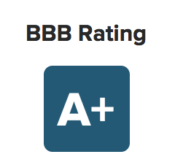
Criminal coercion occurs when a person threatens to physically hurt someone, expose their secrets, or take or withhold some other action that will do injury to their health, safety, or reputation.
Criminal coercion is typically charged along with other charges filed as part of a domestic dispute. The types of threats that lead to an allegation of criminal coercion are sometimes made in the heat of an argument or during some other emotionally charged situation. They are things some people say but don’t mean. However, conviction on a criminal coercion charge can result in more than a year in jail and $10,000 or more in fines.
If you have been charged with criminal coercion as part of a domestic violence case or another crime of violence, you need to contact an experienced NJ defense lawyer to review the criminal charges and discuss your legal options. An attorney can help you understand the charges you face, develop a defense strategy, and protect your rights in court.
A criminal attorney with the Law Offices of Jonathan F. Marshall can keep a family dispute from escalating into a criminal conviction. When threats have been made, we can help you seek the best available resolution to your case. Contact us at one of our nine N.J. locations today. An initial legal consultation is always free.
What Is Criminal Coercion in New Jersey?
Threats to harm another person if that person doesn’t do what you want may be charged as a criminal offense when they place someone in imminent fear of harm or cause them physical injury.
Under New Jersey law, a person criminally coerces another person if they threaten to:
- Inflict bodily injury on anyone or commit any other criminal offense
- Accuse anyone of an offense
- Expose any secret that would tend to subject a person to hatred, contempt, or ridicule or to impair that person’s credit or business reputation
- Take or withhold action as an official, or cause an official to take or withhold action
- Bring about or continue a strike, boycott, or other collective action (except in the course of negotiations)
- Testify or withhold testimony or information related to someone else’s legal claim or defense
- Perform any other act calculated to substantially harm another person related to that person’s health, safety, business, calling, career, financial condition, reputation, or personal relationships.
What Does Coercion in Criminal Law Look Like?
A threat that could lead to a charge of criminal coercion might include the following types of comments:
- If you tell anyone, I’ll kill you
- If you don’t shut up, I will put my hands around your throat and make you shut up.
- Help me hide this, or I’ll say you stole it.
- If you don’t do what I say, I’ll tell everyone about you-know-what.
- Do as I say, or you’ll never work around here again.
When Does Criminal Coercion Most Often Occur?
Criminal coercion charges are often filed as part of a broader case involving charges of:
- Domestic violence
- Harassment
- Stalking
- False imprisonment
- Kidnapping
- Human trafficking
- Terroristic threats
Often, one spouse will criminally coerce the other in an incident that leads to domestic violence charges, or they’ll make a statement intended to stop them from seeking a temporary restraining order (TRO) or a final restraining order (FRO).
What Are the Penalties for Criminal Coercion Charges in New Jersey?
Criminal coercion is a fourth-degree crime in New Jersey unless the person who makes the threat has threatened to commit a more serious crime or the purpose of making the threat is criminal, in which cases the offense is a third-degree crime.
Being convicted of a fourth-degree offense is punishable by up to 18 months in prison and a fine of up to $10,000.
Being convicted of a third-degree offense is punishable by 3 to 5 years in prison and a fine of up to $15,000.
How an Experienced NJ Defense Attorney Can Help
If an experienced criminal defense attorney is representing you, your attorney can make sure prosecutors consider all the circumstances of the case. Was the alleged victim truly threatened? Was their ability to act as they wished truly restricted? If the answer to these questions is no, then the outcome should be a not-guilty verdict. In many incidents involving people with intimate relationships, a Jersey criminal defense lawyer can develop a defense showing the alleged victim was not truly threatened or restricted in their actions.
The prosecutor must prove that a defendant’s purpose or goal in making the alleged threat was unlawful. If he cannot, the defendant should not be convicted.
An experienced criminal defense lawyer with the Law Offices of Jonathan F. Marshall will work to support your side of the story in what is often a “he said, she said” situation. We know that accusations made in the heat of the moment can be exaggerated, if not entirely false. We also know that accusations may be seen differently and retracted later.
A skilled criminal lawyer may be able to persuade prosecutors to reduce or drop charges. If your case must go to court, we will work diligently to obtain the best outcome for this and any associated charges.
Contact Our Criminal Defense Attorneys in New Jersey for Help
If you have been accused of criminal coercion in New Jersey, you need a knowledgeable criminal defense attorney from the Law Offices of Jonathan F. Marshall. Our legal team is made up of former prosecutors and public defenders who have worked in courts throughout New Jersey. In addition to our trial experience, our attorneys have the types of established professional relationships with prosecutors that allow our clients to receive fair consideration when we negotiate on their behalf.
Contact the Law Offices of Jonathan F. Marshall today at (856) 565-3635 or online for a free consultation and strong, dedicated legal representation.











